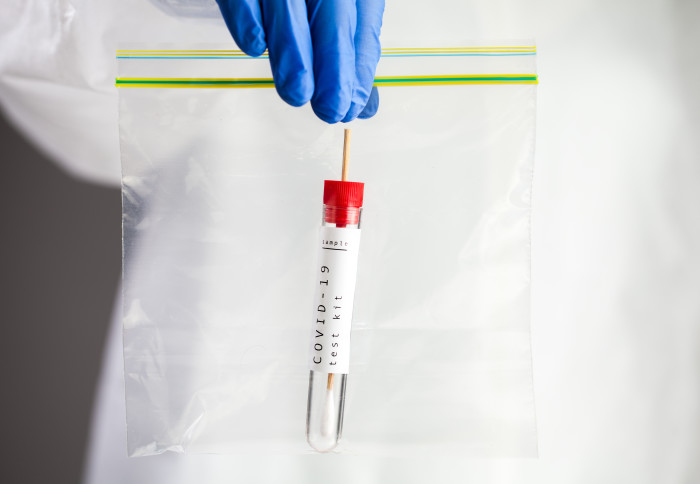Imperial part of London Alliance offering 20,500 more COVID tests a day by March

The Alliance, set up by life science cluster MedCity, brings together world-leading London organisations to meet a need for expanded testing capacity.
Through the Alliance, Imperial College London, Health Service Laboratories in partnership with UCL, King’s Health Partners, and Queen Mary University of London will use existing university and hospital laboratories and launch new testing labs to deliver large-scale diagnostic capabilities.
The Alliance, brought together by life science cluster MedCity, will offer at least 20,500 extra COVID-19 tests a day over the coming months and into the new year, in total. This will expand national testing capacity, which covers swab tests from the community, including those from members of the public, key workers, and care homes.
Building on existing platforms
Imperial’s contribution to the Testing Alliance, supported by Imperial Projects, will be based on an expansion of the College’s existing in-house testing capability.
It builds on earlier success, where Imperial researchers led by Professor Paul Freemont were able to repurpose an existing high-throughput robotic platform as a way to help NHS diagnostic labs avoid bottlenecks caused by increased demand for reagents. The platform is reagent-agnostic, providing flexibility to respond to supply disruptions, is highly scalable, and does not compete for access to commercial kits.

Full capacity in early 2021
Imperial will start processing these community tests for NHS Test and Trace in in mid-November 2020, with a fully scaled operation expected early in January 2021.
The expanded facility will also create a number of new jobs, which are already being recruited for, and will include recent graduates from Imperial’s MSc in Molecular Biology and Pathology of Viruses, hosted by the Department of Infectious Disease.
Proud achievements
Professor Jonathan Weber, Dean of the Faculty of Medicine, said: “I am extremely proud of the achievements of my colleagues, who have already contributed so much to the national and international effort to tackle COVID-19. This is a vivid exemplar of the College’s agility and ability to respond creatively to societal challenges.”
Professor Alice Gast, Imperial President, said: "Since the beginning of the pandemic, colleagues throughout Imperial have been doing all they can to make the world safer from COVID-19. I am delighted that, thanks to MedCity, Imperial has been able to come together with our peer institutions in London to help meet the critical need for increased COVID-19 testing capacity."
Neelam Patel, Chief Executive of MedCity, said: “We work to create powerful scientific networks and we’re proud that the latest collaboration we’ve brought together will help expand capacity for COVID-19 testing in the UK.
“By using a well-established academic cluster, we are able to mobilise London’s world-leading institutions to refocus their space, equipment and people on this most pressing and unprecedented healthcare need.”
"Working tirelessly to increase testing capacity"
Interim Executive Chair of the National Institute for Health Protection, Baroness Dido Harding, said: “Everybody involved in NHS Test and Trace is working tirelessly to increase testing capacity to meet demand.
“These new partnership agreements with this alliance of London University Labs will boost capacity by processing tens of thousands of extra tests over the coming months and into the new year.
“I would like to thank everyone at the alliance of London Universities and NHS Test and Trace who has worked so hard to make this partnership happen. It is another great example of different parts of the country coming together to tackle the virus.”
Health Minister Lord Bethell said: “This alliance of London universities will form part of our national testing network, which is growing all the time and is already the largest diagnostic network in British History.
"The world-leading expertise represented by these universities will make a valuable contribution to the national effort of increasing our testing capacity over the coming months to control the spread of coronavirus.
Article supporters
Article text (excluding photos or graphics) © Imperial College London.
Photos and graphics subject to third party copyright used with permission or © Imperial College London.
Reporter
Mr Al McCartney
Faculty of Medicine Centre